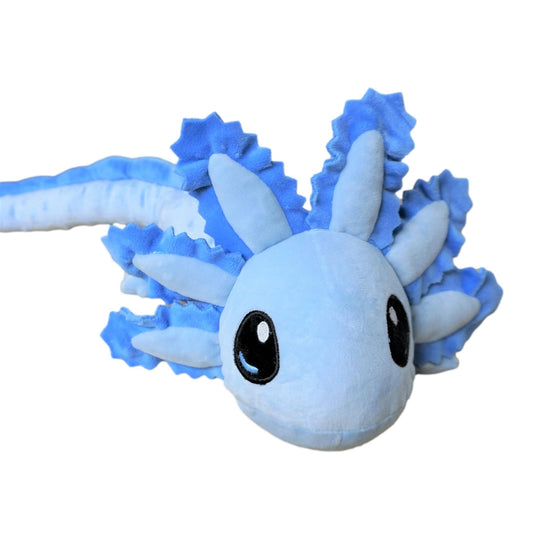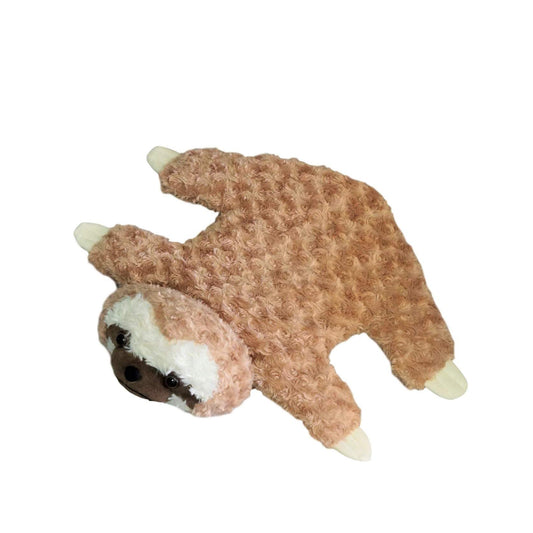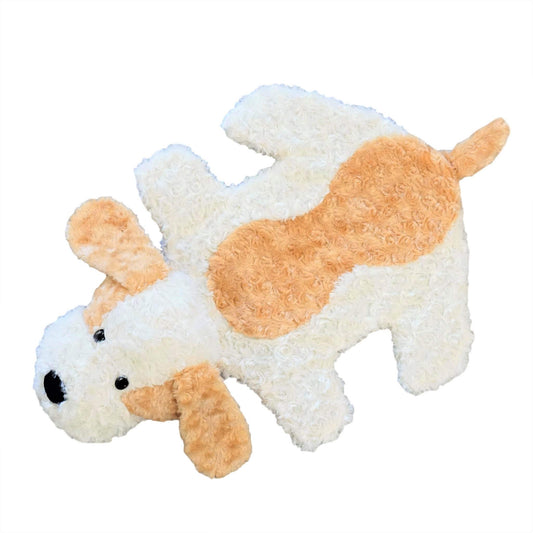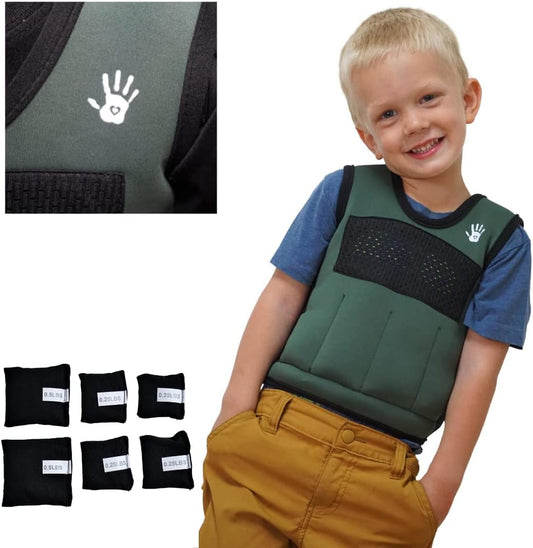Introduction:
Weighted stuffed animals are designed to provide deep touch pressure that can have a calming and soothing effect on individuals, especially those with anxiety or sensory processing issues. With a weighted stuffed animal, gentle deep-pressure stimulation will help soothe and calm you the way a real hug might.
The weight in these stuffed animals is distributed evenly and exerts gentle pressure on the body. The theory behind the use of weighted items, including stuffed animals, is based on the concept of deep touch pressure therapy. This type of sensory input is believed to promote the release of neurotransmitters such as serotonin and dopamine, which can help regulate mood and reduce stress/anxiety.
How heavy should a weighted stuffed animal be for adults?
The ideal weight for a weighted stuffed animal for adults can vary depending on personal preference and the intended therapeutic purpose. Generally, weighted items are designed to provide deep touch pressure stimulation in kids as well as adults, which may have a calming effect on the nervous system. Most weighted stuffed animals weigh between one and five pounds, so they are not generally extremely heavy.
A common recommendation is to use a weight that is around 10% of the individual's body weight. However, this general guideline may not be suitable for everyone. Some people may prefer a lighter or heavier weight based on their sensory needs and comfort levels.
What is filled in the weighted stuffed animal?
Various materials depend on the required weight of a stuffed animal through which you can fill them. They are generally filled with a weighted fill to make them heavy, such as plastic pellets, grains, or glass beads (much like a weighted blanket).
Some other materials that can be used for filling the weighted stuffed animal are mentioned below:
- Polypropylene Pellets: These are small, plastic beads that are often used as stuffing for weighted items. They are non-toxic, washable, and durable.
- Glass Beads: Some weighted products use tiny glass beads as a filling. These beads are smooth and provide a more uniform weight distribution.
- Sand: In some cases, fine sand may be used as a filling material. Sand provides a dense and heavy feel.
It is essential to note that the choice of filling material depends on factors such as safety and the desired sensory experience.

Does sleeping with a stuffed animal help depression?
Yes, of course, sleeping with a stuffed animal does help in treating depression. Various experiments and studies have proved this point. Whether individuals are dealing with anxiety, stress, grief, isolation, or memory loss, countless people find solace in stuffed animals, weighted blankets, and other soft comfort objects.
Sleeping with a stuffed animal can potentially provide comfort and a sense of security for some individuals, but its impact on depression varies from person to person. Depression is a complex mental health condition with various causes and factors. While a stuffed animal may offer emotional support and a feeling of companionship for some individuals, it is not a permanent substitute for professional mental health care. However, it does have its outcome in treating depression to some extent.
Do people with anxiety like weighted blankets?
Research suggests weighted blankets may benefit people with anxiety, autism, and insomnia, among other conditions. For many people, weighted blankets have become a routine part of stress relief and healthy sleep habits. So, yes, people with anxiety often like weighted blankets.
Many individuals with anxiety find comfort and relief from using weighted blankets. People with anxiety often experience heightened levels of stress in their nervous system. The gentle, even pressure applied by a weighted blanket may help to reduce this arousal, leading to a sense of security and relaxation.
It is important to note that individual preferences vary, and while many people with anxiety benefit from using weighted blankets, it may not be the case for everyone. Some individuals may find the sensation of a weighted blanket uncomfortable or restrictive.
Do weighted stuffed animals help with loneliness?
Weighted stuffed animals are not a cure for loneliness, they may offer some individuals a sense of companionship and comfort. The added weight can provide a gentle, hugging sensation, which may help alleviate feelings of loneliness or anxiety for certain individuals, especially those who find comfort in sensory input.
Additionally, if someone is experiencing significant loneliness or mental health concerns, it is essential to consider seeking support from friends, family, or mental health professionals for a more comprehensive approach to well-being.
Are weighted stuffed animals good for mental health?
Weighted stuffed animals are designed to provide a comforting and calming sensation through the use of added weight. While there is limited scientific research specifically on the mental health benefits of weighted stuffed animals, some individuals report positive experiences with them. There are potential ways in which they contribute to mental well-being. These are mentioned below:
- Deep Pressure Stimulation (DPS): Stuffed animals can provide deep pressure stimulation, which may have a calming effect. This type of sensory input is thought to help regulate the nervous system and reduce feelings of anxiety.
- Sensory Support: Individuals with sensory processing difficulties, such as those with autism spectrum disorders or sensory processing disorder, may find comfort in the added sensory input provided by weighted stuffed animals.
- Anxiety Reduction: The weight of the stuffed animal may create a sense of security and help reduce anxiety for some individuals.
These attributes portray how weighted stuffed animals can prove to be effective when it comes to dealing with mental health.
What is an anxiety stuffed animal?
An anxiety stuffed animal, often called an "anxiety plush" or "comfort plush," is a soft and cuddly toy designed to provide comfort and support to individuals experiencing anxiety or stress. These stuffed animals are typically made with soft materials and can be used for hugs, offering a sense of security.
Some anxiety stuffed animals are specifically designed with features that can enhance relaxation, such as weighted components, soothing textures, or aromatherapy elements. The use of these plush/cotton toys is often associated with techniques like sensory therapy, which aims to address and manage anxiety and depression through sensory experiences.
Checkout Sensory4u's Exclusive Collection of Weighted Stuffed Animals





